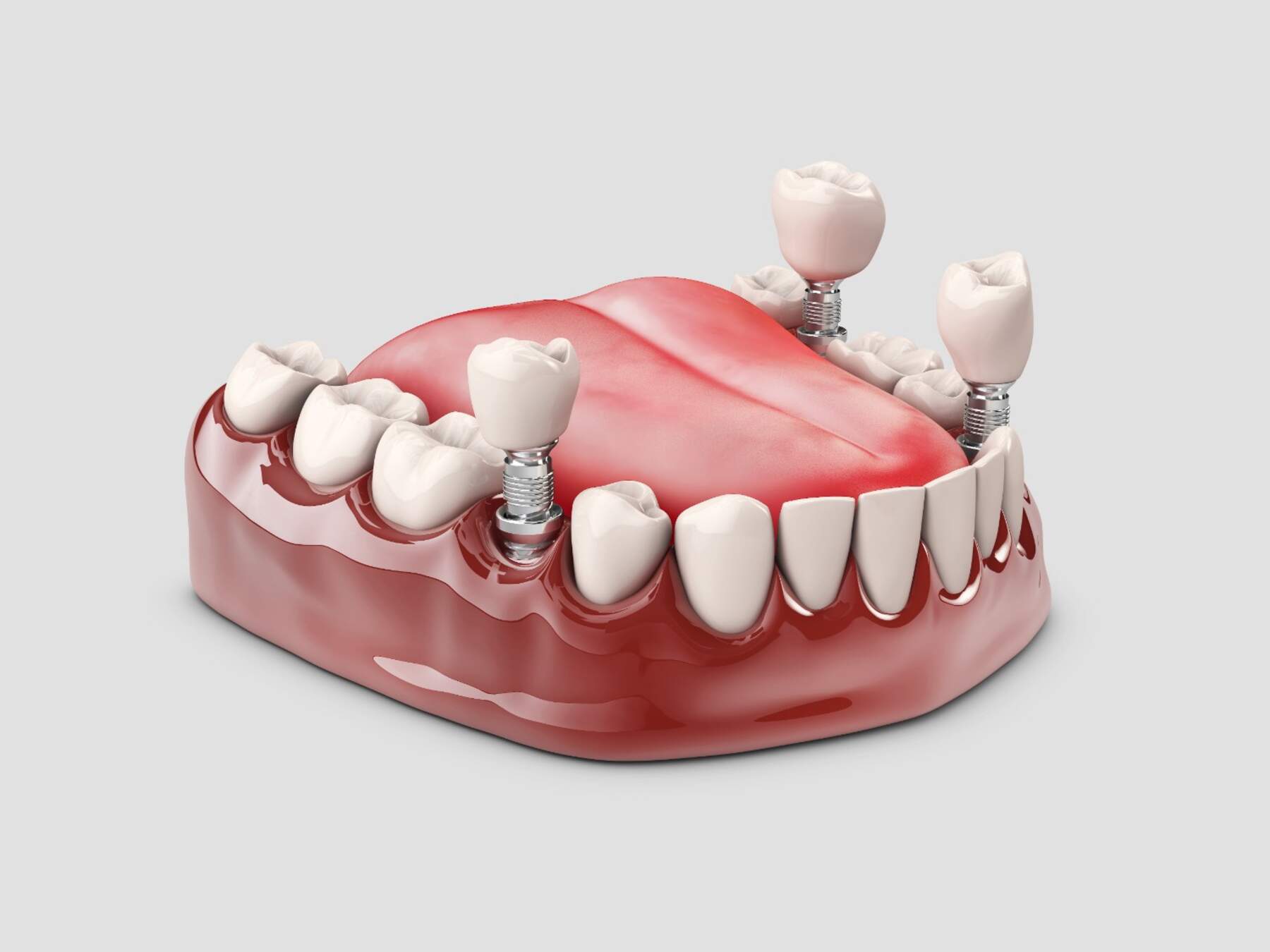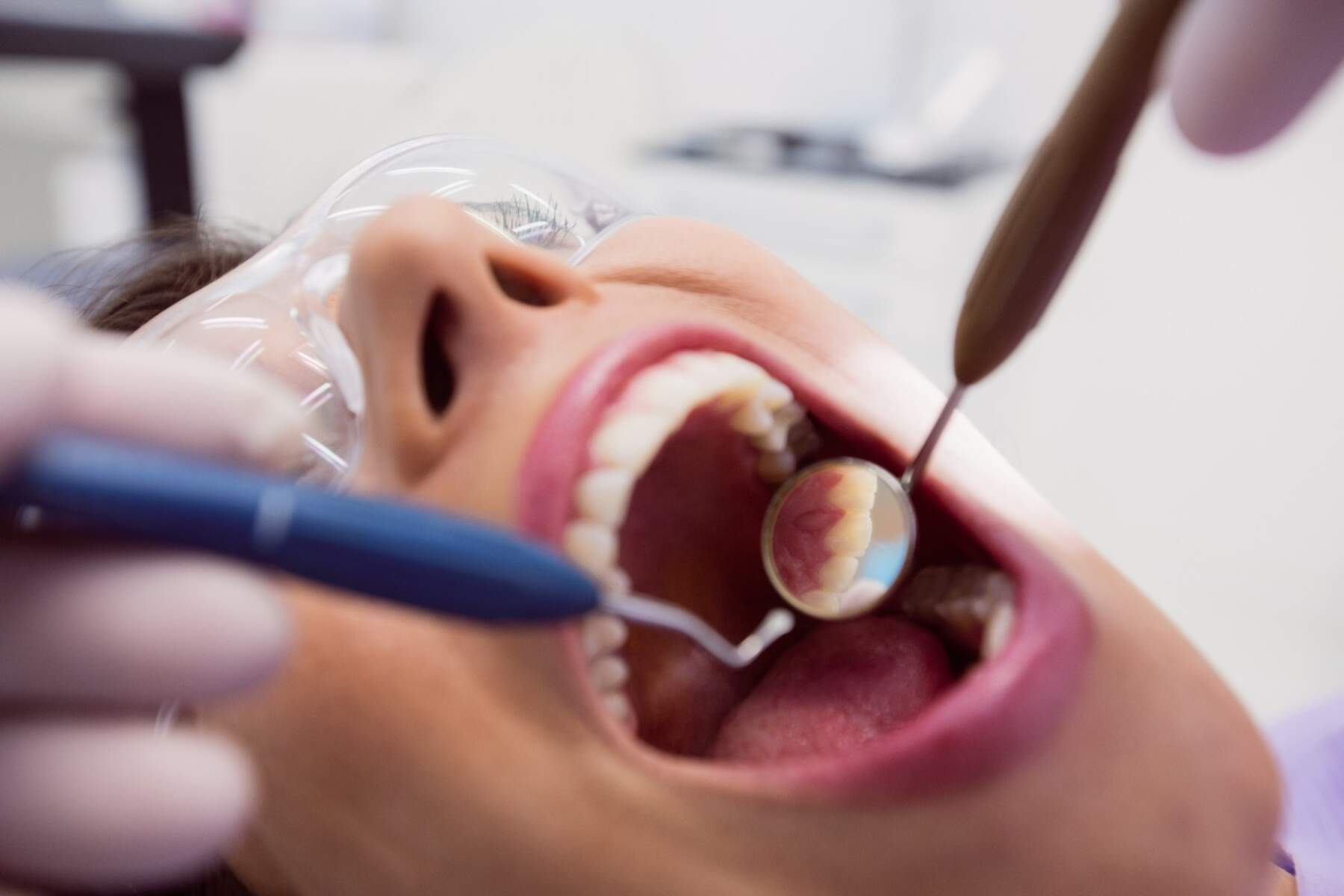Your wisdom teeth are also known as third molars and they are located at the end of your mouth. In some people, they erupt between the ages of 17 to 25, but in others, they may never erupt. The removal or extraction of the wisdom tooth is a pretty common procedure. This procedure can protect your other teeth from further damage. Depending on the case, some people can have all four wisdom teeth removed, while others have two, three, or sometimes none of them. It doesn’t matter how many wisdom teeth you have or don’t have; it doesn’t signify anything is wrong. It’s simply a variation of the usual, and it’s a reflection of the constantly evolving cycle of the oral process.

Preventive Efforts
Your wisdom teeth can be stuck or impacted and not cause any pain. This means they are trying to break through your jaw and find a way out, but they cannot do so. Sometimes this happens because your jaw is too small and it doesn’t have enough space for their development, or their growing direction is in the wrong way for the other teeth. This can harm the jaw and the teeth that are nearby, causing a lot of damage if not removed.
Even if the wisdom tooth is healthy sometimes the dentist will choose to remove it to prevent it from causing damage and pain. The bones in the mouth tend to get stronger as time passes and this makes the process of teeth removal harder and more painful. Heavy bleeding, teeth fracturing, pain, and movement of your jaw are some of the troubles that can be caused if you choose to wait and not go to the doctor immediately.
Overcrowding and Misalignment
A doctor might choose to remove wisdom teeth for a variety of reasons. We’ll start with the first reason, which is tooth overcrowding and misalignment. When the wisdom tooth emerges, it pushes against nearby teeth, and because there is little room in the mouth, it causes issues in the jaw. When patients wear braces, the doctor will advise them to have the wisdom tooth extracted as soon as possible so that the teeth do not begin to shift again. When wisdom teeth erupt, they have the ability to move the jaw and shift the teeth, causing issues and undoing all of the years of effort provided by braces.

Extreme Pain
When wisdom teeth erupt they cause pain, which is usually coming from the back of your mouth area where they are located. People explain it as a feeling of pressure in your jaw and gums. In some cases, it is possible for the pain to start to spread to other areas of the mouth making it unbearable. The dentist will do a check-up and an x-ray to see where the pain is located.
Before coming to the dentist you can try to brush and floss your teeth or take painkillers to stop the pain and if nothing is working it’s time for a check-up.
Damaged Teeth
These irritating third molars can do more than just ruin a straightened smile, despite the fact that crowding may be enough reason for removal. They can cause the nearby second molars to develop tooth decay when they erupt and brush against one another.
Gum Disease
When wisdom teeth fight their way in, your gums may be caught in the fight. Because there isn’t enough space, the teeth can’t fully erupt, which may lead to swelling of the gums, a problem that is complicated to manage. Gum disease develops as a partly impacted tooth pushes away from the gums and makes room for germs and infections to form.

Jaw Health Complications
When wisdom teeth only partially erupt, the jaw is also vulnerable to major difficulties. However, tumors and cysts rarely develop in the jaw after wisdom teeth are removed. Keep in mind that discomfort and jaw issues might be brought on by the growth of wisdom teeth.
Poor Dental Hygiene
Some people do not have a bad experience with wisdom teeth, they may choose to not remove them as they are comfortable and do not cause any complications, nevertheless, they will find that they are particularly strong. This makes it very difficult to brush, floss, and clean effectively. It is not worth the chance of future poor oral hygiene to put off the common and routine surgery needed for wisdom teeth removal.
If you choose to not remove the wisdom teeth, many problems can occur in the future, and on the contrary, if you fix this problem while still young it will ensure fewer problems. There are several risks to take into consideration if you choose to keep the wisdom teeth. The dentists advise you to not take these risks and to put your worries aside by consulting a doctor on what is the best course to follow.
How should I prepare for wisdom teeth removal?
After you come for a consultation, your overall health will be checked by the dentist and they will take dental X-rays to see where the pain is coming from and the condition of your teeth. He will also ask you to tell him any information about your medicine or vitamins you are taking.
If he decides your conditions are suitable for this procedure he will later discuss the sedation dentistry options that are possible. There are three options available; general or local anesthesia, nitrous oxide (laughing gas), and IV (intravenous, or through your vein) sedation. Your dentist will offer you specific advice on how to be ready before the treatment, so you don’t have to worry about anything. This can entail quitting certain medications a few days beforehand and fasting after midnight the evening before your operation. Never discontinue taking medicine without first speaking to your dentist. In complex cases, the surgery can take some time, but in most cases, it can take about 1 hour or less.

What happens during wisdom tooth extraction?
Your surgeon will start the procedure by first giving you anesthesia to numb your teeth and gums so you do not feel any pain and feel comfortable throughout the procedure. After this there will be small incisions made in your gums area, to get the stuck tooth out in the surface. The tooth will then be loosened and will be lifted from its sock. The area will be cleaned to prevent any possible infection. In some cases, stitches will be used to close the area that is open and a gauze will be placed to prevent heavy bleeding.
What happens after wisdom teeth removal?
Swelling, bleeding, and little discomfort are expected and it is normal after the wisdom tooth removal procedure. You will need someone to drive you and take care of you after the anesthesia wears down. Instructions and advice will be given by the dental surgeon, to make the recovery process go smoothly. The total recovery time takes about one to two weeks maximum in most cases. However if you feel ready you can return to work or job in 5 days, depending on how you feel.
What are the benefits of removing wisdom teeth?
If you are considering removing your wisdom tooth before the pain starts you can prevent future potential risks like gum disease, damage to teeth that are near, jaw damage, tooth decay, and bone loss to develop. In other cases when you start to feel pain, the doctor will recommend you remove it as soon as possible, to ease the discomfort and to get your oral health back to normal.
What are the risks or complications of extraction?
Even though the risks are small, you should still be aware of them if you decide to have the wisdom teeth removed. Some of the potential risks you might want to think about before the operation include infection of the surrounding area, blood loss, exposed bone, and harm to other neighboring teeth. The dentist will explain everything, and you are free to ask any questions you may have.
FAQ
How long after wisdom teeth removal can I eat?
You can resume eating and drinking when you feel comfortable to do so. Even though you should keep in mind the food should be soft for the first few days, then you can start to gradually add more solid food until you get back to normal. You should avoid using straws as they can dislodge blood clots and cause dry sockets.
What to eat after wisdom teeth removal?
As we said for the first days you should stick to a soft food diet, just to be sure to not cause any damage. Solid, chewy food can interrupt the healing process and cause pain and discomfort.
Some of the foods that are advised to be consumed are:
- Yogurt.
- Applesauce.
- Mashed potatoes.
- Soft cheese.
- Different kinds of smoothies.
- Pudding.
- Different kinds of soups.
- Macaroni and cheese.
- Scrambled eggs.
- Soft fruit.
- Steamed vegetables.
When can I go back to work or school?
The recovery process after the wisdom tooth removal is relatively short and you can return to your activities when you feel comfortable to do so. Doctors will recommend you take a rest for at least three to five days. Avoid doing heavy work because it can increase the heartbeat and can worsen the swelling and pain.
What’s the average wisdom teeth removal age?
There is no age limit for removing wisdom teeth. However, the procedure will be easier if you are in your twenties, as they are still developing and it will be easier to remove them without a lot of pain.




